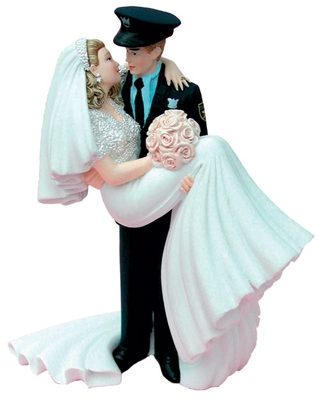 Today, 50 per cent of Americans believe that marriage is “becoming obsolete”. Sociologists consider many Western European countries already to be post-marriage cultures. These trends don’t surprise me. When marriage is compulsory but undesirable, people will do it because they have to. When marriage is optional but enticing, people will do it because they want to. But when marriage is both optional and unenticing, marriage loses its urgency or appeal.
Today, 50 per cent of Americans believe that marriage is “becoming obsolete”. Sociologists consider many Western European countries already to be post-marriage cultures. These trends don’t surprise me. When marriage is compulsory but undesirable, people will do it because they have to. When marriage is optional but enticing, people will do it because they want to. But when marriage is both optional and unenticing, marriage loses its urgency or appeal.
But I’ve got a quirky optimism about marriage. There’s a case to be made for it – and we shouldn’t cede that case to religion. Traditional marriage is our institution, too. It’s a civil contract, and we need a humanist “defence of marriage” to match the religious one.
In fact, our case for marriage is already being made, but silently. It happens in actual marriages, rather than in political rhetoric. We tend to talk about marriage in black and white terms, but we live marriage in ambivalent shades of grey. And in this world of real marriages, as I discovered interviewing dozens of couples, improvisation, compassion, flexibility and even ingenuity are happening.
Furthermore, these thoroughly human qualities of innovation and adaptability are defending traditional marriage more successfully, it seems, than the rhetoric of traditional marriage, if new divorce and marriage statistics are any indication. In the US, “Bible Belt” states with the most traditional marriage values have the highest divorce rates. Also, an unprecedented marriage class gap has emerged. Better-educated, more affluent Americans, who tend to be more secular, are both getting married and staying married longer.
Insofar as values play into these new culture gaps, the numbers make a case for marriage with implicitly humanist, adaptive views. For example, these successfully marrying communities demonstrate more gender-role flexibility. It’s not unusual to see stay-at-home dads in the professional classes, and the community embraces that idea. Meanwhile, however, religious and conservative marriage defenders lament the emergence of the career woman, and advocate a revival of the male breadwinner and the stay-at-home wife.
A humanist defence of marriage means that I trust human ingenuity and goodwill to refine the institutions that we’ve created. This might mean, for example, more customised marriage contracts, designed to suit each couple. I interviewed a woman who rewrote her marriage vows with her husband every five years or so. She had learned a lesson the hard way from her own parents, who were very unhappily married, deeply religious Catholics who steadfastly refused to divorce, or to change the scripts or to defy the social conventions of marriage.
My humanist defence of marriage means that I try to have a positive or at least tolerant view of the two things – desire and reason – that are unique to humans, and to our humanity. It means being pro-sex, as opposed to reflexively judgmental, sceptical or morally dogged about extramarital sex or the prospects for ethical non-monogamy in marriage. For some marriages, open non-monogamy does work, as I describe in my book Marriage Confidential.
Finally, a humanist defence of traditional marriage doesn’t propose to strengthen marriage through yet more rigid scripts, binding contracts and orthodoxy straitjackets to keep us in line. For example, the governor’s suggested remedy for Oklahoma’s high divorce rate was to double down on religious views of marriage, and to propose a “covenant marriage” option in the law that would lash spouses tighter to Christian bonds of marriage as a sacred vow.
In contrast, I propose that marriage will survive by continuing to evolve as a living civil institution.
I don’t fear that one adaptive change in the estate of marriage will lead down a slippery slope or a road to perdition. I believe that humans can be trusted to make changes in and to the estate of marriage – such as supporting same-sex marriage, or perhaps contemplating “term-limited” marriage contracts –without propelling us into a world of swinging-from-the-chandeliers orgies and cats-sleeping-with-dogs mayhem. I’m not that pessimistic about humans’ moral capacities, or capacities for sexual self-government.
Maybe, like a suspension bridge, marriage survives best by swaying a bit with the winds rather than bracing rigidly against them. I’m still married, through the ups and downs, because I believe in myself and my spouse, and not orthodoxy. But that belief has proved to be quite enough. Where radical evangelicals lament marriage’s demise, I see its strength and celebrate its diversity.
Pamela Haag’s Marriage Confidential: The Post-Romantic Age of Workhorse Wives, Royal Children, Undersexed Spouses & Rebel Couples Who Are Rewriting The Rules is published by Harper Collins

